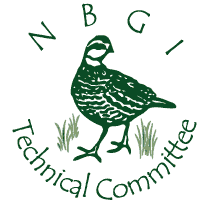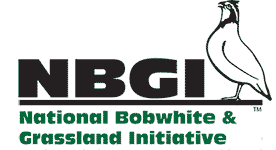DALLAS – The Texas A&M AgriLife Extension Service will join a host of other entities to present the seminar “Quail Restoration in North Texas: An Active Approach,” from 9:30 a.m. until noon Jan. 4 in the Dallas Convention Center.
The seminar is part of the Dallas Safari Club’s annual convention.
“It’s no surprise to anyone who spends much time outdoors to learn that wild bobwhite quail numbers are at an all-time low across most of Texas,” said Dr. Dale Rollins, AgriLife Extension wildlife specialist at San Angelo. “The demise of the iconic bobwhite from much of its historic range across North and West Texas is frustrating to all concerned. Habitat loss or land fragmentation is easy to blame east of I-35, but that argument doesn’t hold up over much of the Rolling Plains.
“No one can say for certain what’s caused the precipitous decline in quail numbers,” he said. “I can list 20 or more hypotheses and they all have some credibility, but none holds up across the board in my opinion. A combination of poor weather, namely record drought and heat, along with increasing numbers of feral hogs, fire ants and other predators are having some effect.
“The Rolling Plains Quail Research Ranch is midway through a three-year effort to assess diseases and parasites. All we can say right now is that millions of acres of apparently suitable habitat have few if any, quail on them, hence the desire to try some active restoration approaches.”
Rollins said while good habitat is important, the seminar will focus on identifying active approaches to restoring quail populations.
“Our keynote speaker will be Dr. Bill Palmer from the Tall Timbers Research Station in Tallahassee, Fla.,” Rollins said. “The efforts there have restored not only quail, but also renewed hope among quail hunters and plantation owners in northern Florida and southern Georgia.”
Joe Crafton of Dallas, with Park Cities Quail, will serve as moderator, Rollins said. He will start the seminar with a summary of quail decline in Texas and end it with a question-and-answer panel at the program’s conclusion.
“We’ve enlisted regional experts from across north Texas to present their respective efforts,” Rollins said. “Jason Hardin, Texas Parks and Wildlife Department upland game bird specialist, will summarize recent research on ‘Surrogators’ which have been popular with some hunters over the past few years. Surrogators are self-contained brooding houses purported to increase survival of farm-reared bobwhites. Chicks are placed in them at two days of age and then released at five weeks.”
Rollins said in his role as director for the Rolling Plains Quail Research Ranch, he will present the ranch’s new initiative, Operation Transfusion, which he said is their effort to actually transplant wild-trapped bobwhites to the historic stronghold of Stephens and Shackelford counties.
Charles Hodges of Dallas, chairman of the board for Texas Tech University’s Quail-Tech program, will summarize their efforts, and finally, Dr. Kelly Reyna of Denton, director of the University of North Texas’ UNT-Quail unit, will highlight their efforts in the eastern portion of the Rolling Plains.
Sponsors for the event, along with AgriLife Extension’s Quail Decline Initiative, include the Dallas Safari Club, Park Cities Quail, Quail Coalition, Quail-Tech, Rolling Plains Quail Research Ranch, Tall Timbers Research Station, Texas Parks and Wildlife Department and UNT-Quail.
Two Texas Department of Agriculture continuing education units will be available for those with a private applicator’s license.
There is no charge for the seminar, but Rollins notes participants will likely want to attend the Dallas Safari Club convention which has a $20 per person admission fee. Last year’s convention drew about 30,000 hunters and featured more than 1,000 exhibits, he said. This year’s event will feature a special section called Wingshooters’ World.
For more information contact Fred Burrell, AgriLife Extension agent in Dallas County, at 214-904-3050, f-burrell@tamu.edu or Rollins at 325-653-4576, d-rollins@tamu.edu .

